SUMMARY
This is AI generated summarization, which may have errors. For context, always refer to the full article.
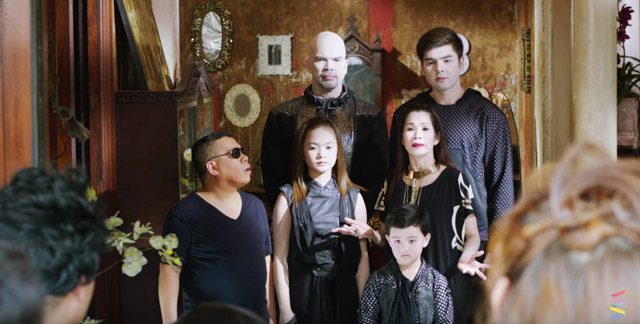
The best parts of Wenn Deramas’ Wang Fam happen very early on, when the film sets itself up for the array of assembled conflicts that frame the predictable string of gags and jokes.
The set-up
A coven of aswang is about to sacrifice Malou (Pokwang), their last virgin, to give their aging queen (Vangie Labalan, almost unrecognizable underneath the prosthetics) a younger vessel for the purpose of launching some sort of unexplained plan for world domination.
However, Boo (Benjie Paras), a traveling botanist who is obsessed with finding herbs to rid the world of disease, saves Malou from her fate by marrying her. Malou returns the favor by transforming Boo into an aswang when her relatives attempt to kill him out of rage.
It’s a whole lot of nonsense, which isn’t really the problem. Deramas is an expert in shaping comedy out of overwhelming inanity, and the first 20 or so minutes of Wang Fam showcases a lot of gags that exploit the most basic of humor. A lot of it sort of works.
The unabashed zaniness of the set-up is genuinely affecting. It is almost impossible not to get carried away by the absurdity of it all, and how the film manages to drown whatever story it has with a fleet of random punchlines.
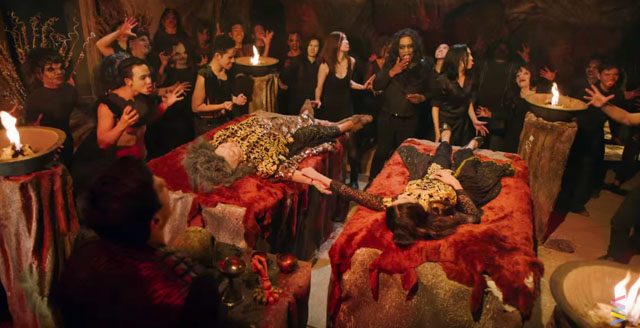
Of course, Pokwang and Paras are brash comedians. As such, they perfectly capture the kind of comedy that Deramas uses for his films, and are able to pull off even the most unsophisticated of jokes with unabashed vulgarity. If anything, the set-up of Wang Fam is a display of Deramas skillfully orchestrating all of his indulgences amidst a thin story of a man rescuing a woman from certain death. It is either fun or gross, depending on one’s tolerance for the famous director’s antics.
The struggle
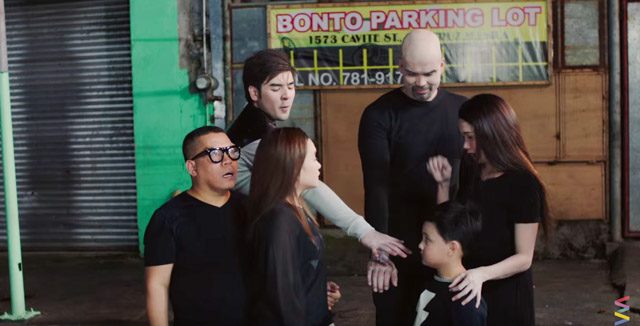
As soon as Boo and Malou are joined by their children, the film starts to reveal its sorry deficiencies. See, after Boo and Malou escape the coven of aswang, they are forced to start a family away from the hateful eyes of humanity. After being chased away from one of their many transient homes, they are forced to move to Manila, where they become the center of their new neighbors’ suspicious glances.
The story is actually a little bit intriguing. The Wang family’s sudden relocation to Manila gives rise to several conflicts. First, their eldest son (Andre Paras) inexplicably falls in love with a neighbor (Yassi Pressman), resulting in a desire for the former to become human. Second, Malou’s family is still chasing her, which finds the couple in disagreement over whether or not to abandon their quest to become fully humans amidst their need to be as strong as their opponents.

Sadly, Deramas never gets serious, or better yet, is unable to meld the story’s more serious undertones with all the inane humor. Moreover, the film never really graduates from the jokes that were already delivered during the set-up. A lot of the comedy becomes unbearably repetitive, with the exception of the over-the-top performance of Candy Pangilinan, who plays the reasonably suspicious but unreasonably intolerant landlady of the neighboring dormitory.
In defense of Deramas
The grave failures of Wang Fam is expected out of Deramas. Deramas is most definitely just an entertainer who has the knack of calculating his works in terms of the market that will eat them up without question. In a way, the film succeeds in being an ambitious-less product that is as valuable as the cheap packed lunch that fulfills the purpose of quelling hunger without the satisfaction of being anything more than food.
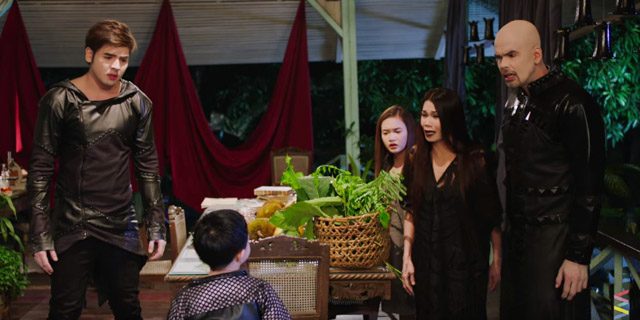
Interestingly, Deramas’ role in the mainstream is more precious than the erstwhile effects of his individual films. A lot of Deramas’ works have broad statements on tolerance. His collaborations with Vice Ganda like Praybeyt Benjamin (2011) and This Guy’s in Love With U Mare! (2012) are grandiose and blunt in its advocacy for the queer community, often to a fault because it sidesteps certain sensitivities. His only horror film, Maria Leonora Teresa (2014), has a main character whose backstory reveals a step towards spotlighting homosexual relationships within populist films that do not have anything to do with queer interests.
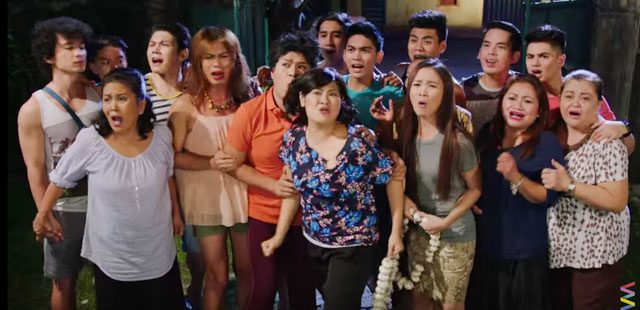
Wang Fam is hardly about homosexuality. It also features gay characters who seem to be there mostly for comedy. However, it also sloppily talks of tolerance and self-acceptance, only using horror and humor to veil obvious implications. Deramas, for all his faults as a filmmaker, is actually doing brave things within a system that is marked by its aversion for risks, but there is really need for more craftsmanship. – Rappler.com
 Francis Joseph Cruz litigates for a living and writes about cinema for fun. Thefirst Filipino movie he saw in the theaters was Carlo J. Caparas’ ‘Tirad Pass.’ Since then, he’s been on a mission to find better memories with Philippine cinema. Profile photo by Fatcat Studios
Francis Joseph Cruz litigates for a living and writes about cinema for fun. Thefirst Filipino movie he saw in the theaters was Carlo J. Caparas’ ‘Tirad Pass.’ Since then, he’s been on a mission to find better memories with Philippine cinema. Profile photo by Fatcat Studios
Add a comment
How does this make you feel?
There are no comments yet. Add your comment to start the conversation.